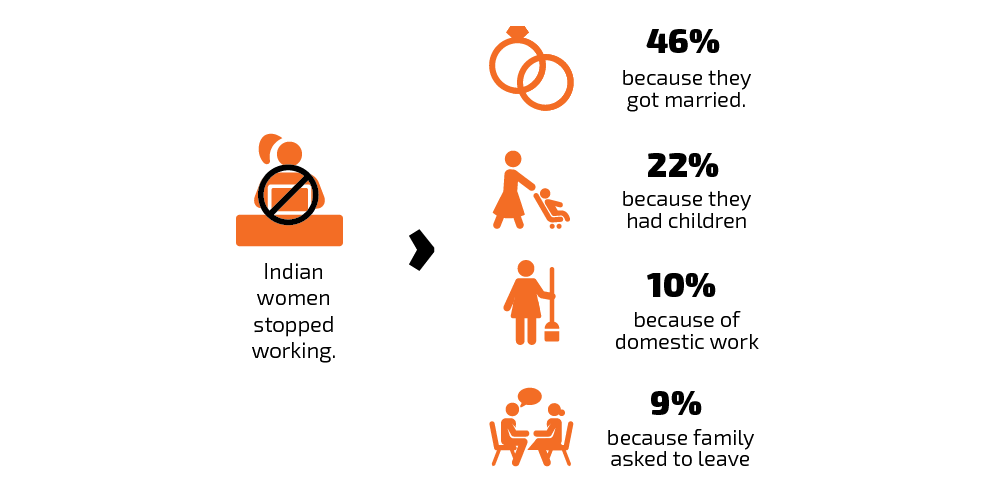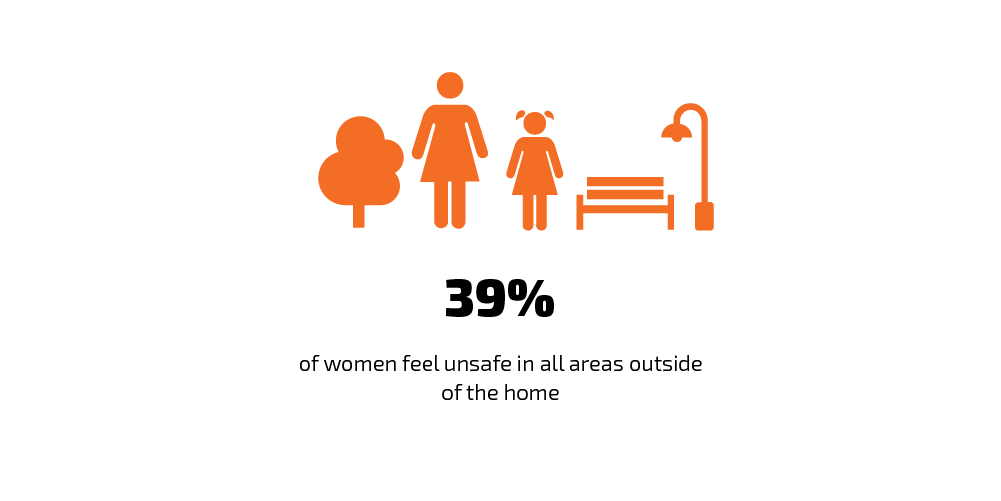Almost 70% of women interviewed in India indicated that family approval is vital for them to pursue education.
Our case study ‘Will women be part of India’s workforce? A quest for inclusive and sustainable growth’ looks at the factors that explain declining female labour force participation in the country. This report shows that it is not access to education that shapes women’s entry into employment. Instead, social norms and safety conditions in public spaces limit female participation in the labour market.
Highlights

Between 2005 and 2012, the share of working-age women in India who have, or are seeking, a job declined from 49% to 36%.
In urban areas, only 1 in 5 working-age women are in the labour force. Family dynamics are a key structural barrier to women making the decision to look for work. Notably, as soon as a family’s income rises, women are discouraged from working.
In addition, marriage, motherhood and care responsibilities restrict women’s ability to access the labour market.
The quality of infrastructure is another factor that prevents women from being part of the labour market under equal conditions.
Data from our study shows that 38.5% of women in India feel unsafe in all areas outside of the home. This is significant, considering that 80% of women who work use public transportation or walk to their places of work.
Support structures such as maternity leave and sick leave are also very limited. Only 5.8% of women indicated having access to sick leave and just 7.6% reported having access to maternity leave.



Meena Nair
Head ResearchMeena is the Head of Research at the Public Affairs Centre (PAC). Meena holds a PhD from the Jawaharlal Nehru University, India and has more than a decade of experience in the implementation of social accountability tools.

Kritika Shah
Programme OfficerKritika is a Team Lead at PAC. She has a BA in Economics from New York University. She was a consultant at EY in New York. Kritika has been involved in public policy research and consulting in India.

Aparna Sivaraman
Programme OfficerAparna Sivaraman is Programme Officer at PAC. She is part of the project team studying the causes of India’s declining female labour force participation.

Annapoorna Ravichander
Head, Policy Engagement and Communication TrainingAnnapoorna is Head-Policy Engagement and Communication & Training at PAC in Bengaluru-India.
